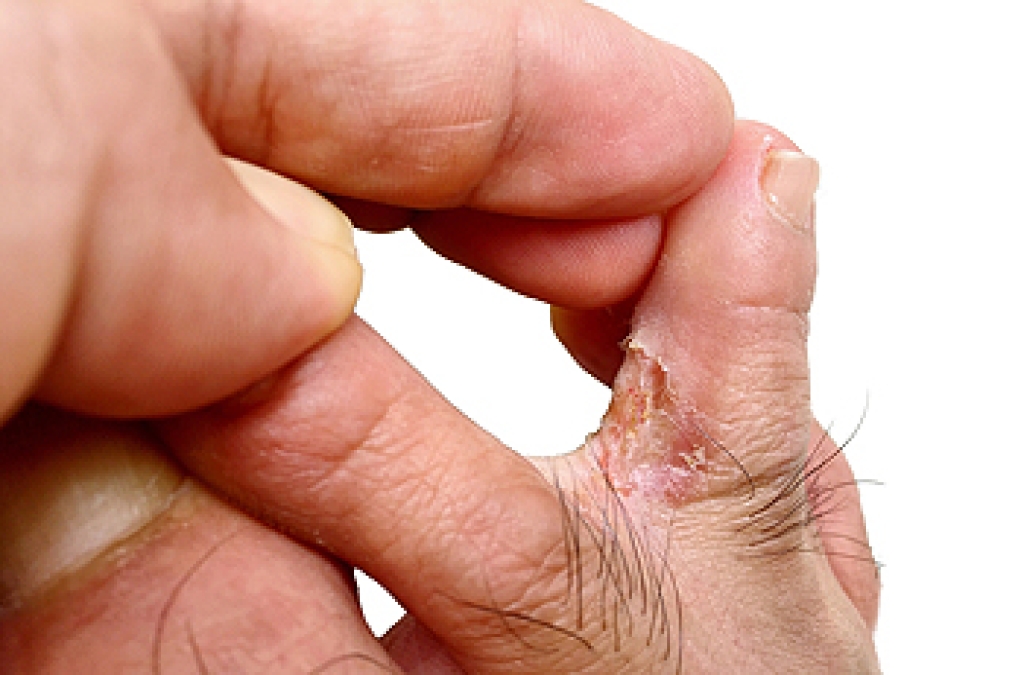
Athlete's foot, or tinea pedis, is a common fungal skin infection primarily affecting the feet. It presents with symptoms such as itching, peeling, and cracking, often occurring on the soles of the feet and between the toes. This contagious infection spreads through contact with contaminated surfaces, making environments like swimming pools and locker rooms potential hotspots. Wearing tight-fitting shoes exacerbates the issue by creating a moist environment conducive to fungal growth. Athlete's foot can manifest differently, such as toe web infections, moccasin-type infections, or vesicular infections. Diagnosis generally relies on visual examination, but sometimes skin or nail samples are tested for fungi. Adequate foot hygiene, including keeping feet clean and dry, changing socks daily, and wearing breathable shoes, plays a vital role in prevention and management. Medication is often prescribed for a successful recovery, and it is beneficial to complete the full course, even after symptoms subside. It is suggested for Individuals with diabetes or persistent infections to schedule an appointment with a podiatrist for more advanced care.
Athlete’s Foot
Athlete’s foot is often an uncomfortable condition to experience. Thankfully, podiatrists specialize in treating athlete’s foot and offer the best treatment options. If you have any questions about athlete’s foot, consult with one of our podiatrists from Associates in Podiatry, PC. Our doctors will assess your condition and provide you with quality treatment.
What Is Athlete’s Foot?
Tinea pedis, more commonly known as athlete’s foot, is a non-serious and common fungal infection of the foot. Athlete’s foot is contagious and can be contracted by touching someone who has it or infected surfaces. The most common places contaminated by it are public showers, locker rooms, and swimming pools. Once contracted, it grows on feet that are left inside moist, dark, and warm shoes and socks.
Prevention
The most effective ways to prevent athlete’s foot include:
- Thoroughly washing and drying feet
- Avoid going barefoot in locker rooms and public showers
- Using shower shoes in public showers
- Wearing socks that allow the feet to breathe
- Changing socks and shoes frequently if you sweat a lot
Symptoms
Athlete’s foot initially occurs as a rash between the toes. However, if left undiagnosed, it can spread to the sides and bottom of the feet, toenails, and if touched by hand, the hands themselves. Symptoms include:
- Redness
- Burning
- Itching
- Scaly and peeling skin
Diagnosis and Treatment
Diagnosis is quick and easy. Skin samples will be taken and either viewed under a microscope or sent to a lab for testing. Sometimes, a podiatrist can diagnose it based on simply looking at it. Once confirmed, treatment options include oral and topical antifungal medications.
If you have any questions, please feel free to contact our offices located in Pittsburgh-South Hills, and Pittsburgh-Bellevue, PA . We offer the newest diagnostic and treatment technologies for all your foot care needs.
